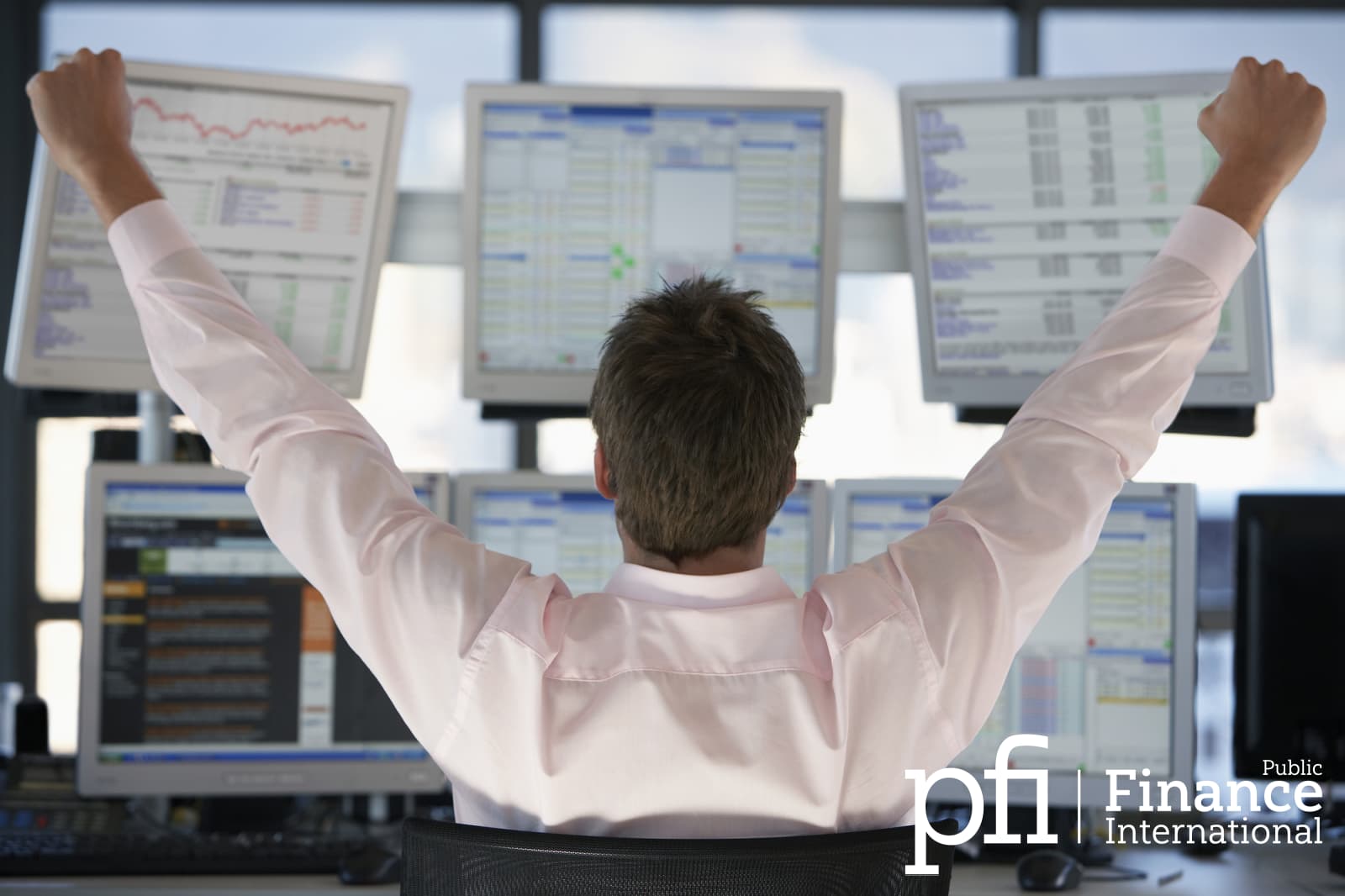A floor trader is a member of a stock exchange who trades from the floor of the exchange for his or her own account. Floor traders must follow trading rules similar to those of exchange specialists who trade for others.

Floor Trader Basics
Floor traders are professional stock traders who trade on the floor of an exchange for their own account, although some work for large banks or other financial institutions. Floor traders must be exchange members and are typically experienced, well-capitalized traders with lots of knowledge about the markets and how to trade stocks.
They use hand signals and oral communication to buy and sell stocks. Floor traders have a long history on Wall Street and continue to play an important role in the market today.
Floor trading is a physical process that requires traders to be present on the floor of the exchange to buy or sell securities. This can be contrasted with electronic trading, which allows trades to be executed without needing a physical presence.
Floor traders play an essential role in the stock market by providing liquidity and helping to ensure that prices are fair and transparent. Because they trade on the exchange floor, they have a first-hand view of supply and demand conditions. This information can be critical in making informed trading decisions. Floor traders also help to provide stability in the markets by buying and selling large amounts of stock when there is significant price movement. This helps to prevent prices from getting too out of control and ensures that buyers and sellers have an opportunity to trade at fair prices.
Because they are trading for their account, they are not beholden to anyone else and can make decisions based on their analysis and research. This can be advantageous, as they can act quickly when they see an opportunity without worrying about someone else's opinion or agenda. However, they can also incur greater losses if their trades go wrong.
Floor trading has many advantages, including the ability to execute large orders quickly and efficiently and take advantage of market conditions that may not be readily apparent to electronic traders. However, floor trading also has its drawbacks, such as higher costs and the need for experience and capital.
What Being A Floor Trader Looks Like
Floor traders work in an open environment where they can interact with other traders and exchange information. This allows them to better understand market sentiment and trends, which can help them make more accurate trades. Their knowledge of how the market works helps them make informed buy and sell decisions to profit from price movements.
Floor trading is a fast-paced and dynamic activity, requiring a high level of skill and risk tolerance, which is why they are often depicted in the media as restless and reckless individuals willing to bet everything they have on a single trade. While this may have been true in the past, floor traders are becoming rarer as electronic trading becomes more prevalent. This is because electronic trading allows traders to execute orders quickly and efficiently without having to be on the floor of the exchange physically.
Becoming A Floor Trader
Becoming a floor trader is not as easy as one might think. Many requirements must be met before an individual can trade on the stock exchange floor. They are subject to the rules of the exchange and must meet specific requirements set by the National Futures Associations (NFA). They include a screening process, an application, fingerprints, and an agreement to abide by the rules of the NFA. The NFA oversees all futures markets in the United States and sets rules and standards for trading practices.
Floor traders must also adhere to strict trading guidelines, which vary depending on the type of futures contract being traded. For example, a floor trader who trades commodity futures contracts must comply with the Commodity Futures Trading Commission's (CFTC) regulations governing speculative trading.
Due to their lack of experience and money, one tends to start as a clerk and then progress as they gain more experience.
Rise Of Electronic Trading
The rise of electronic trading platforms has meant big changes for floor traders. Electronic trading allows investors to trade directly with each other rather than through a mediator like a floor trader. This meant many floor traders had been forced to move to electronic trading platforms to stay competitive. Also, the speed and efficiency of electronic trading platforms have made it difficult for floor traders to compete.
Finally, the cost of trading on electronic platforms has often been lower than the cost of trading on the floor of an exchange, meaning that many floor traders have been forced to close up shop. As a result, floor traders are becoming less and less common, and many exchanges are phasing them out altogether.
Future
It's difficult to say what the future of floor traders looks like, especially after the 2020 crisis. Some experts believe floor trading will become obsolete in the face of increasingly sophisticated computer algorithms and high-frequency trading. However, others argue that human interaction will always be necessary for some capacity for trading and that floor traders will continue to play an important role in the securities markets.
Floor traders will need to adapt to survive in the current market environment. They may need to focus on providing value-added services such as market analysis or order execution. In addition, they will need to stay up to date on new technologies and trading strategies in order to compete with automated trading systems.